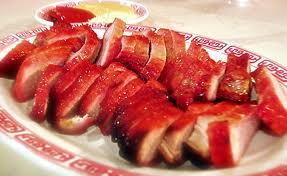The virtue of the gold standard was that countries with trade surpluses saw their gold holdings rise, which increased their money supply, raised prices and reduced exports. Conversely, countries that ran deficits lost gold, which caused their money supply to decline, pushing prices down and boosting exports. Today, euro-using Germany runs chronic surpluses, yet won’t tolerate the necessary inflation, making recovery for the euro-using Club-Med countries unnecessarily difficult.
Tag Archives: eisenberg graphsandlaughs
Interesting Jobs
With 195,000 new jobs in June, the average monthly gain in the first half of 2013 is 202,000 – way up from the 130,000/month pace when QE3 began. Moreover, the unemployment rate remained unchanged, because 177,000 people joined the labor force! Unfortunately, 112,000 of the new jobs were either in leisure and hospitality or retail trade, both low-paying sectors. Three more months like this and tapering probably starts in September.
Freedom is Expensive
The Revolutionary War, fought between 1775 and 1783 cost $101 million then or about $2.4 billion today. That number includes only the cost of military operations. If you include interest on borrowed money and veterans’ benefits, costs are higher. The number of Revolutionary War dead totaled 4,435 out of a population of 2.75 million. Proportionally, that’s equal to 525,000 dead today. Be very appreciative and celebrate the 4th.
Bang Up Banks
While rising long-term interest rates will hurt banks by reducing the value of their bond portfolios, that will be a one-time hit and banks are exceptionally well capitalized and will easily withstand the losses. Conversely, a widening spread between short-term rates and long-term rates will boost bank profits on new loans as banks generally borrow short-term money from depositors and lend long-term to borrowers, pocketing the difference.
Baby Bounce
The Friday File: Retailers expect Britons to spend $100 million toasting the arrival the Duke and Duchess of Cambridge’s first child in July. Another $40 million will be spent on party food, $207 million on commemorative memorabilia and books and $38 million on toys. All totaled, almost $400 million not including the “Kate Effect” which boosts sales of everything she buys. BTW, I’m 2,567,321,879th in line to the throne.
Vicious Volatility
On days like today when stocks, bonds, precious metals, commodities and emerging markets all fall, portfolio diversification, doesn’t help. Remember that. Separately, financial markets have wiped out all of May and June’s gains not because QE3 will end, but because participants are unconvinced that the economy can withstand higher interest rates without slowing. And that will hurt household spending and ultimately corporate earnings. I’m diversifying into booze.
Delicious Daddy
The Friday File: While female spiders are well known to eat their suitors following intercourse, the question has always been why. Turns out, spiderlings born of females that eat their partner have a 48% of survival while spiderlings born to females who don’t dine on daddy have only a 12% chance of survival. In this case, it can truly be said that fathers give it their all for their offspring.
Chinese Pork Purchase
Shuanghui International Holdings’ purchase of Smithfield Foods for $7.1 billion, including debt, will be approved by federal regulators. This is because the relevant regulator, the Committee on Foreign Investment in the US (CFIUS), only blocks deals involving national security. And bacon just isn’t a national security or defense concern. Moreover, given China’s chronic trade surplus with the US, it’s reasonable that Beijing buy more than US Treasuries with microscopic yields.
Tough Taxes
The Friday File: Every percentage point increase in state income taxes faced by free-agent baseball players raises their salary by $22,500/year. By contrast, the same tax increase reduces slightly the average skill level of free-agent basketball player signings. It’s because baseball teams have no real salary cap, while basketball teams are very constrained. Thus, basketball teams in low-tax states effectively have a higher salary cap and sign better players.








